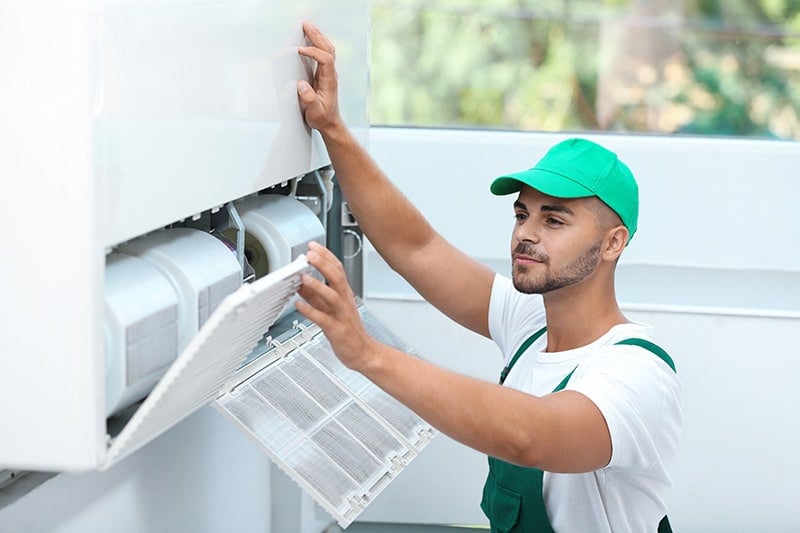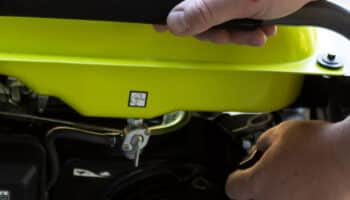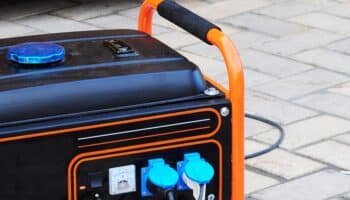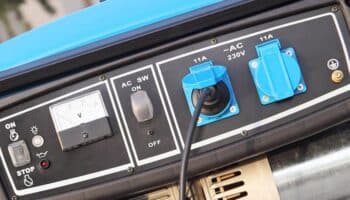Are you wondering how long you can safely run your portable generator?
In today’s energy-hungry world, running out of power is simply not an option. That said, it’s perfectly understandable that you’d want to know exactly how long your portable generator can last.
Below, you’ll find some useful information to answer your most burning questions and provide a clearer perspective on the situation.
Keep reading to keep the power on!
Safe Run Times By Model
There are lots of external factors that could change how long it is safe for you to run your portable generator. Some of them are:
- How cool you can keep the generator
- How much oil there is in the generator’s engine
- How much fuel you have on hand
- The temperature outside
Check out this table for a simple illustration:
| Portable Generator Fuel Type | How Long You Can Safely Power the Portable Generator |
| Gasoline | Up to 16 hours. You should not refill the generator while it’s running. |
| Propane | If managed well, between 150 and 200 hours. |
| Diesel | With a steady supply of diesel and careful observation, up to 500 hours |
Portable generators are great to have in case of a blackout or to stay connected with the world while on a camping trip. These appliances are extremely convenient, and there are many models out there that won’t burn a hole in your pocket.
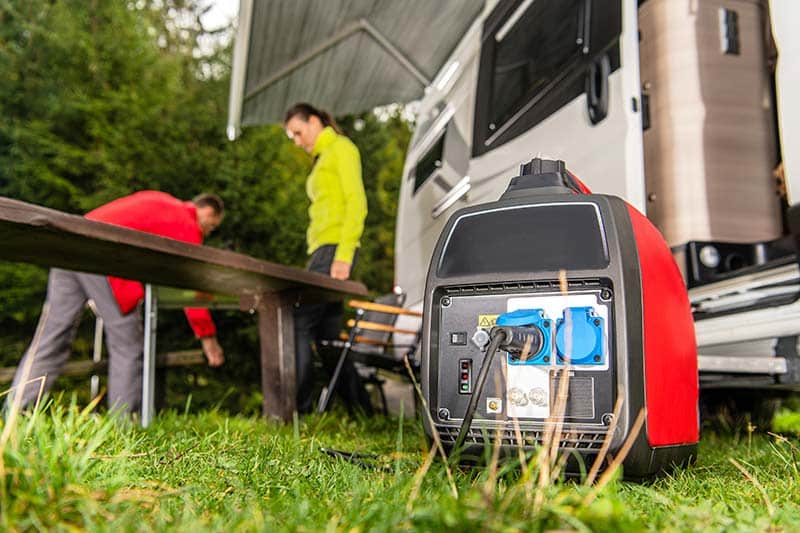
You may wonder how long you can run yours without running into problems, and the answer is: it depends. The runtime of your portable generator will vary greatly depending on the type of fuel that it runs on. There are other additional factors worth considering, which we’ll explore below.
But first things first.
Gasoline vs Propane Portable Generators
There are two main types of portable generators on the market – propane models, and their gasoline counterparts. While they both do a great job at saving you from an emergency, the former will typically run for longer than the latter due to the substance it uses to draw power.
There are other major differences between gasoline and propane portable generators, such as:
| Portable Gasoline Generators | Portable Propane Generators |
| Should not be refueled while the generator is running. | Can be refueled while the generator is running |
| Should be cooled down before refueling the generator. | Can be refueled continuously as long as the engine is kept cool. |
| Their runtime depends on the size of the fuel tank and the amount of energy you consume. | Their runtime depends on the amount of oil in the generator’s engine |
| Can run for up to 16 hours. | Can run for anywhere between 150 to 200 hours. |
Cons of Gasoline Portable Generators
Now, you’re probably wondering why there’s such a massive difference between one portable generator and the other. Well… the main reason behind this is the ease of refilling. As opposed to propane models, gasoline generators can’t be topped up while they’re hot, as the fumes in the air could cause an explosion.
To make matters worse, while larger gasoline portable generators can last up to 16 hours, there are many models out there with smaller tanks that last much less.
Pros and Cons of Propane Generators
These, unlike gas generators, can be refilled while they’re hot. This gives you the potential to run yours for anywhere between 150 and 200 hours.
That said, not everything’s peachy, and there are a few things that could affect the runtime of your propane generator. Below, you’ll find some of the most common problems you might encounter, as well as some countermeasures you can take to keep from shortening the generator’s run time:
| Problem | How to Stop it From Affecting Your Generator’s Runtime |
| A Build-Up of Heat | A generator will begin to overheat once you have used it nonstop for more than 24 hours. You should also try to blow cool air from a fan on the engine to prevent it from overheating. |
| The Amount of Oil in Your Generator’s Engine | Most generators will shut off when the oil levels are low in the engine. Make sure that you top up the oil levels before you begin using the generator. The generator should run for 150–200 hours before you have to refill the oil. |
| The Temperature | Running the generator at a high wattage will make it heat up more. If the external temperature is hot, the generator could overheat. Consider running the generator at a lower wattage, and keep it away from direct sunlight. |
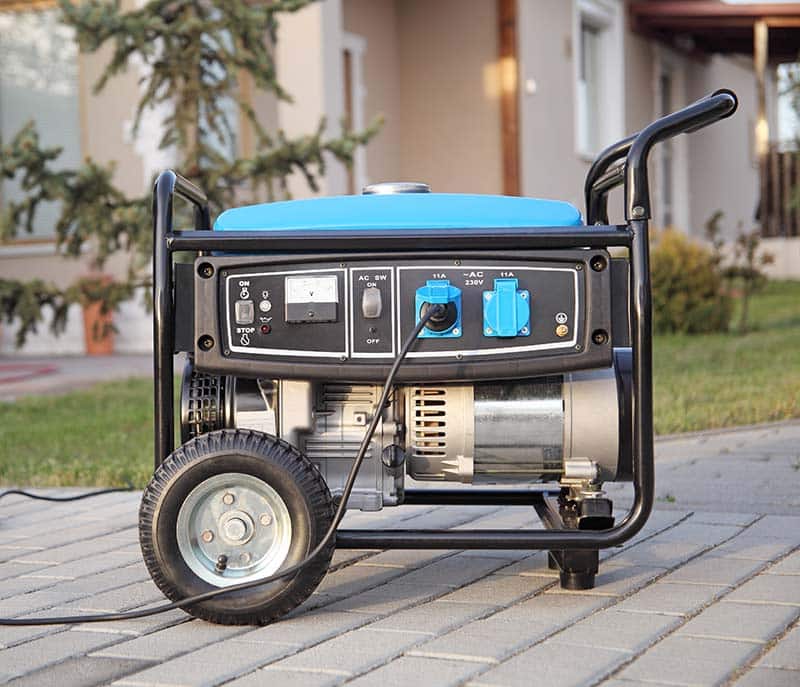
Can a Generator Run in the Rain?
When you go out camping, you prepare yourself for all kinds of weather. You may pack a thick sleeping bag for chilly nights. Or a waterproof tent for damp mornings. You could even consider an insulated sleeping pad or a windbreaker.
But what about your generator? Is it prepared for a turn in the weather?
Not always. In fact, it’s not typically safe for you to run your appliance in wet weather, such as:
- Rain
- Snow or sleet
- Hail
It’s worth emphasizing that a wet generator is a dangerous one. So, if you suspect there’s some inclement weather on the way, you should avoid using it. However, what can you do if you get caught outside and need to run your generator in wet weather?
Special Canopies
You can buy a canopy for your unit to do the following:
- Protect the generator from high-speed winds.
- Protect other parts of the generator you don’t want to get wet.
- Maintain good airflow to the engine to prevent overheating.
If you want to get any replacement part – or see how much one would cost – click to enter your model number in the search bar below. Our partners at AppliancePartsPros stock almost every part with free guides on how to install them.

Overall, canopies are great, but they’re not without flaws. Here are some pros and cons to consider:
| Pros | Cons |
|---|---|
| -Portable and easy to set up and dismantle. -Good at protecting the generator from bad weather. -Inexpensive. | -May not be very effective in heavy rainstorms. |
Steel Enclosures
You can buy a steel enclosure that locks over the entire generator and does the following:
- Stops water from leaking into the generator.
- Protects the generator from high-speed wind.
- Maintains good airflow to the engine to prevent overheating.
Here are some pros and cons of using a steel enclosure to protect your generator:
| Pros | Cons |
|---|---|
| -It protects the generator from bad weather. | -You will have to hire a professional to install the steel enclosure -Not portable. -Expensive. |
Retrofitted Plastic Enclosures
You can buy a retrofitted plastic enclosure that locks over the entire generator. This type of enclosure tends to be cheaper than steel enclosures. A retrofitted plastic enclosure does the following:
- Stops water from leaking into the generator.
- Protects the generator from strong winds.
Here are some pros and cons of using a retrofitted plastic enclosure to protect your generator:
| Pros | Cons |
|---|---|
| -Good at protecting your generator from bad weather. -Cheaper than a steel enclosure. | -A retrofitted plastic enclosure could easily become subject to overheating and possibly fire. This could happen if you use your generator for extended periods or on very hot days. |
Conclusion
If the power is down, then you’d certainly want to keep your generator running as long as possible. We hope you received useful insights on how to extend your appliance and generator’s runtime.
If this article has helped you and proved an interesting read, I encourage you to check out some of our other articles and free guides. Or join our mailing list!
Have a great day.
-Craig


